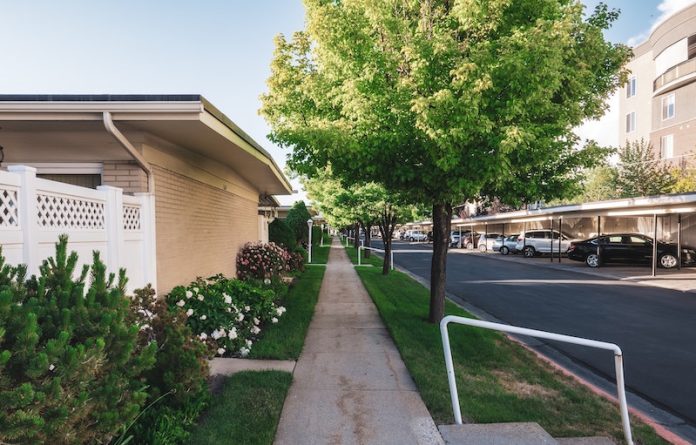
In a study from Barcelona Institute for Global Health and elsewhere, scientists found that living in greener areas may boost mental health, and reduce medication use.
Urban green space has many well-known health benefits, including longer life expectancy, fewer mental health problems, and better cognitive functioning.
However, exactly how much green space is needed to improve people’s health remains an open question.
In the study, researchers evaluated the link between better mental health and the 3-30-300 green space rule.
According to this rule of thumb, everyone should be able to see at least three trees from their home, have 30% tree canopy cover in their neighborhood, and not live more than 300 meters away from the nearest park or green space.
The rule was proposed by urban forester Cecil Konijnendijk and has been widely promoted by many other foresters and urban planners.
The team examined 3,145 Barcelona inhabitants aged 15-97 years who participated in the Barcelona Health Survey 2016.
They showed that full adherence to the 3-30-300 green space rule was clearly associated with better mental health, less medication use, and fewer visits to a psychologist, although the association was statistically significant only for the latter.
Residential surrounding greenness, but no visibility of trees from windows or access to a major green space, was strongly linked to better mental health.
The team showed that only 4.7% of the surveyed population met all three criteria of the green space rule.
Just over 43% of respondents had at least three trees within 15 meters of their home, 62.1% had a major green space within 300 meters and 8.7% lived in an area with sufficient surrounding greenness.
However, nearly 22.4% had none of these elements.
The study found that there is relatively little green space in Barcelona and that the 3-30-300 rule is satisfied only for a small percentage of people, despite its beneficial mental health effects.
According to the research team, similar studies should be carried out in cities with more tree cover than Barcelona, since the lack of green space, especially sufficient tree cover, limits the ability to assess the 30% aspect of the 3-30-300 rule.
If you care about depression, please read studies about supplements that may help reduce depression and the immune system that may fight against depression.
For more information about nutrition, please see the recent about why pizza is a very addictive food, and the MIND diet could improve cognitive health in older people.
The study was conducted by Mark Nieuwenhuijsen et al and published in Environmental Research.
Copyright © 2022 Knowridge Science Report. All rights reserved.



